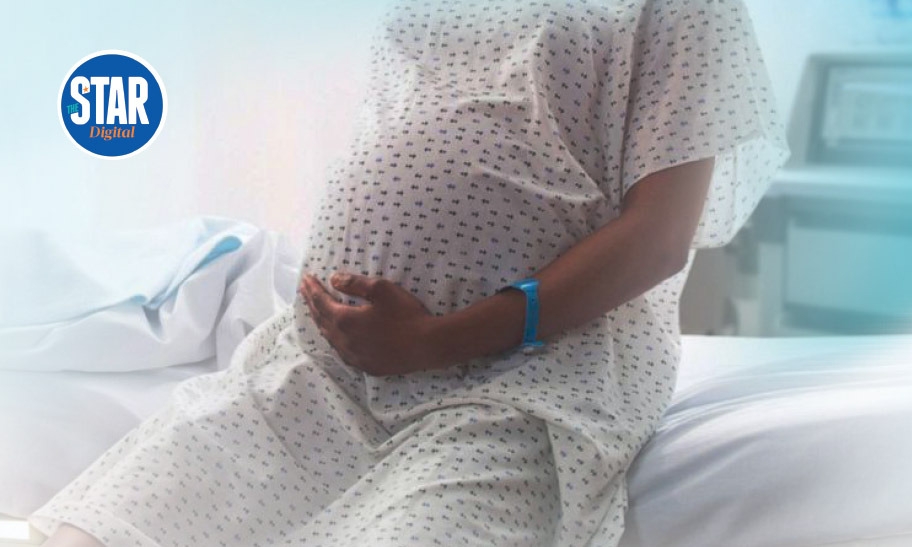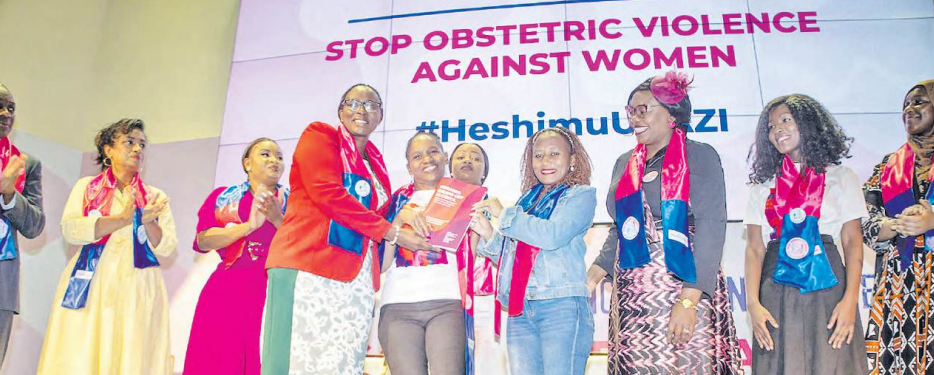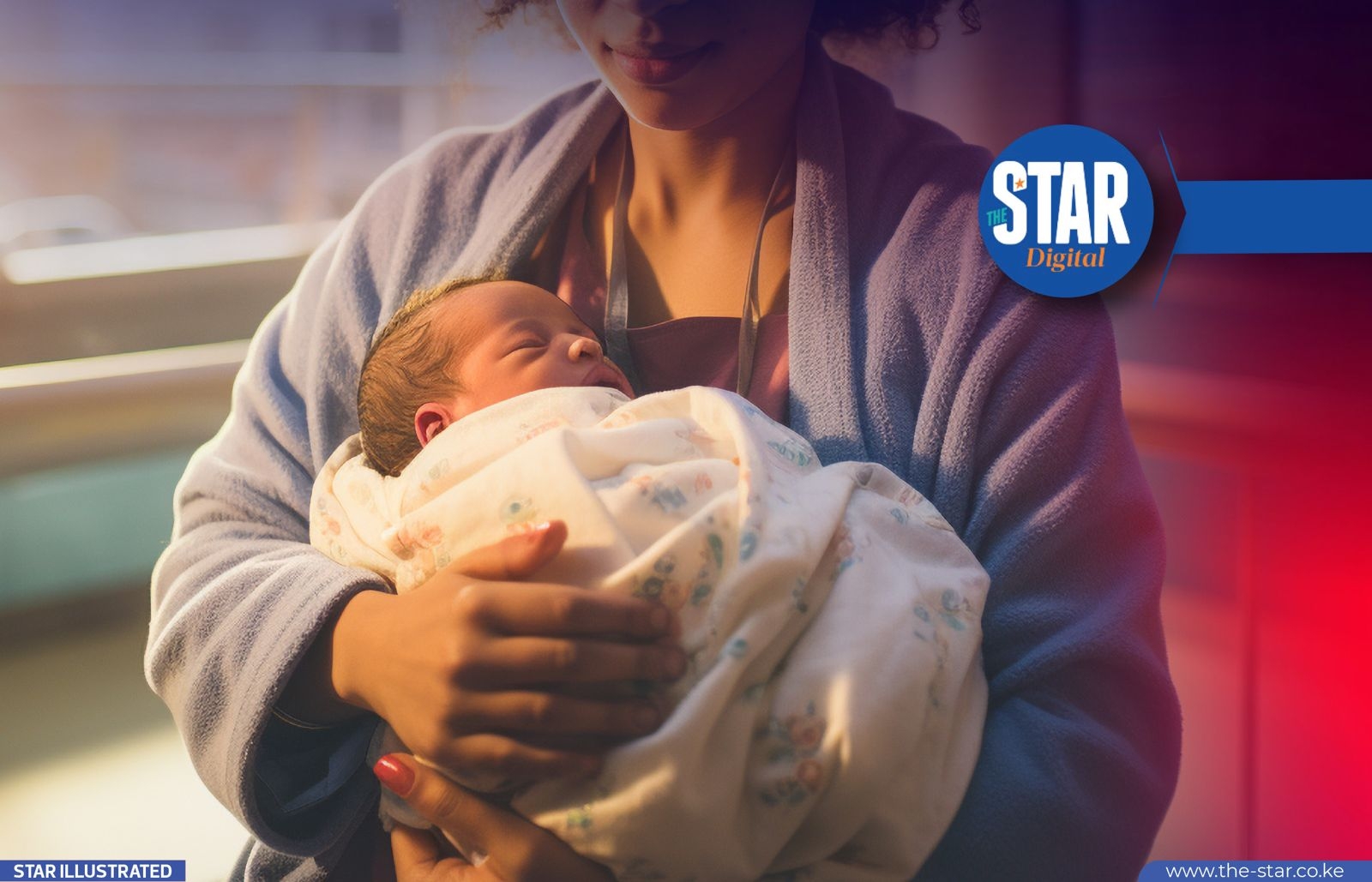
Types of Obstetric Violence (OBV)
OBV is a form of violence agaainst women, that occurs while receiving maternal care.
“Many women develop complications like fistula and other serious issues after childbirth due to neglect."
In Summary

Audio By Vocalize

Two mothers have shared their traumatic experiences during childbirth
at government hospitals, opening
the lid on unprofessional maternal
care in local healthcare facilities.
While the joyful anticipation of welcoming a new life often fills expectant mothers with hope, these women’s stories illustrate a harsh reality marked by neglect, insensitivity and a lack of compassion from medical staff.
As they recount their harrowing journeys through labour, these mothers highlight the urgent need for reforms to protect the rights and well-being of those giving life and to ensure that no woman has to endure such suffering during one of life’s most vulnerable moments.
Jessica* (not her real name), a mother from Kayole, recently recounted the harrowing experience she endured while giving birth at a well-known government hospital earlier this year.
The ordeal began when she arrived at the facility with mild contractions only to be dismissed by a nurse who accused her of exaggerating her condition.
“She looked at me and said, ‘Why are you exaggerating? This isn’t even labour. Go back home and come when it becomes more serious,” Jessica recalled.
She was shocked as it was her second time giving birth. Rather than leave, she chose to wait nearby. An hour later, as her contractions intensified, she returned to the same nurse, who responded with irritation.
“She scolded me for disturbing her, saying there were other women in more serious labour and I needed to be patient,” Jessica said. “I felt alone and desperate, so I pleaded with her to let me stay in the maternity ward.”
Fortunately, the nurse eventually relented. However, things took a turn for the worse when a group of nurses arrived to check the dilation of the mothers in the ward.
“Their handling was rough, and when I complained, one nurse slapped me, saying, ‘Giving birth is not for the weak. You should know that,” Jessica recounted, her voice trembling.
After raising her voice to inform the staff that her baby was arriving, she faced further scorn from the nurses. “I gave birth on my own in the hospital, and the nurses and doctors only came to assist after I yelled,” she said, relieved that her baby was born healthy despite the ordeal.
When asked if she reported the incident, Jessica expressed scepticism about the prospect of accountability. “You can’t report them; nothing will happen. I can never go back to that hospital,” she lamented.
UNNECESSARY C-SECTION
Another mother, known as MW from Kikuyu, shared her own traumatic experience from five years ago.
During her fourth pregnancy, she arrived at a local government hospital in active labour, having had three previous uncomplicated births.
After being admitted and checked by a nurse, MW was informed she was six centimetres dilated and was given medication to expedite the process.
However, panic set in when nurses claimed her baby was in distress and insisted on an emergency C-section. “I was terrified and asked for my sister to be with me. Initially, they refused, but my sister made a scene and they finally let her in,” MW recounted.
She expressed concern over the medical staff’s motivations, sharing that she had heard of doctors manipulating patients into unnecessary surgeries for profit.
MW requested clarity on how they assessed the baby’s condition, especially since no ultrasound had been performed. The staff’s anger escalated when they were questioned.
“Eventually, they demanded Sh10,000 for a consultation fee and the drip. My sister paid, and we left in a hurry,” MW said.
Fortunately, they found help at a nearby private clinic, where she delivered her baby naturally. “If I hadn’t been so stubborn, I could have ended up with a C-section, even though it wasn’t needed. Many hospitals trick mothers into procedures that aren’t necessary,” she said.
MW urged the government to implement stricter regulations to protect mothers and their newborns during childbirth.
She also called for the establishment of a reporting mechanism for women to voice complaints and seek justice for mistreatment in medical facilities.
HEALTH EFFECTS
These troubling accounts shed light on the experiences of mothers navigating the complexities of childbirth in local hospitals, raising critical concerns about patient care and accountability in Kenya’s healthcare system.
Githunguri MP Gathoni Wamuchomba has introduced a motion in the National Assembly calling for dignified maternity care and the end of obstetric violence in Kenya.
Obstetric violence, as defined in the motion, encompasses a range of abusive behaviours, including physical and verbal abuse, neglect, forced medical procedures, humiliation and even assault during labour and delivery.
In an interview with the Star, Wamuchomba spoke passionately about the challenges women face during childbirth, explaining that many women in Kenya suffer in silence, unaware of where to seek help for violations of their rights.
“I’ve realised many women in Kenya suffer silently. They don’t know who to tell or where to get solutions and interventions for violations of their rights,” Wamuchomba said.
“One of the key rights being violated is the right to privacy. Another is the right to access proper healthcare.”
Wamuchomba highlighted several instances of mistreatment that women experience in healthcare facilities, including neglect, wrongful medical procedures, and verbal, physical, and psychological abuse by healthcare providers.
“Many women develop complications like fistula and other serious issues after childbirth due to neglect or mishandling during delivery. These errors erode a woman’s dignity and their basic human rights,” she said.
The MP also shared disturbing reports from women who were coerced into undergoing medical procedures, such as forced family planning immediately after childbirth, without their consent.
“Women have reported cases of their babies going missing after birth, or babies being switched or marked inappropriately. This is the reality many women face, and this is what I call obstetric violence.”
QUEST FOR ACCOUNTABILITY
The MP believes that criminalising obstetric violence would create a legal foundation for holding healthcare providers accountable for any mistreatment during and after childbirth, and ensure that women are treated with the dignity they deserve.
“Every woman, regardless of her social or economic status, deserves a dignified and respectful childbirth experience, free from any form of violence or abuse,” she said.
“It is time for us to undo the injustices that women have suffered under obstetric violence in Kenya.”
Wamuchomba’s proposal also underscores the need for healthcare facilities to maintain proper accountability measures, including regular oversight and reporting mechanisms, to ensure that obstetric violence is minimised.
“Through the ‘Stop Obstetric Violence’ campaign launched by Kewopa last year, we realised that we need a national reporting centre where women can call and report cases of obstetric violence and other violations of their health and privacy rights during childbirth,” she said.
As part of her advocacy, Wamuchomba launched a toll-free national call centre for women on November 28 at The Kenya Women and Children’s Wellness Centre, Mirema Drive, Kasarani in Nairobi.
The initiative aims to address obstetric violence (OBV), which includes mistreatment during labour, childbirth and postnatal care. Women can report incidents by calling 0111055181.
She also added that the centre will provide a confidential platform for women to report any mistreatment they face during childbirth.
“This will be part of our broader efforts to ensure women are treated with respect and dignity, especially as we observe the 16 Days of Activism against Gender-Based Violence in Kenya,” she said.
“We will celebrate this milestone as we continue to fight for the rights of women, particularly during one of the most vulnerable times in their lives, childbirth.”
If the motion is approved,
Wamuchomba hopes it will pave the
way for better policies, including a
comprehensive national strategy to
end obstetric violence and ensure
all women in Kenya receive the care
they deserve during childbirth.

OBV is a form of violence agaainst women, that occurs while receiving maternal care.

OBV is a form of violence against women, that occurs while receiving maternal care.